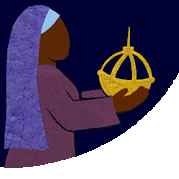 |

|

|
Is there a place for liberals in the LDS Church? John A. Widtsoe once
wrote that "the Church of Jesus Christ is preeminently liberal."
But other church leaders have expressed quite negative attitudes toward
religious liberals, sometimes referring to them as "so-called intellectuals."
Individual Latter-day Saints—including General Authorities—have
always had different understandings of how to interpret the scriptures
and how to put their religion into practice. Understandings along liberal
lines are part of that diversity and can be traced back to the beginnings
of Mormon tradition. However, liberal voices have always been a minority
among the Saints. As in other denominations, where "conservatives"
or "fundamentalists" struggle against "liberals" or
"progressives," conservative Saints have moved against liberal
teachings they perceive as undermining the true faith. Increasingly since
the middle of the 20th century, tolerance within the church for liberal
understandings of the Restoration has been reduced.
For individuals who believe that the Spirit speaks to them through liberal
interpretations of Mormon tradition, the LDS Church may not feel very
hospitable. Such individuals may feel that they must choose between being
"closet doubters" and leaving the church altogether. People
who practice a liberal Mormon spirituality need to be aware that for the
foreseeable future, their relationship with the LDS Church will be, at
best, complicated.
John A. Widtsoe: Under
the true definition of liberalism, the Church of Jesus Christ is
preeminently liberal. . . . Members of the Church of Jesus Christ
of Latter-day Saints do not need to look elsewhere for a liberal
Church.
|
| Evidences
and Reconciliations (Salt Lake City: Bookcraft, 1960), 45-46 |
Harold B. Lee: There
are those in the Church who speak of themselves as liberals who,
as one of our former presidents has said, "read by the lamp
of their own conceit." . . . One time I asked one of our Church
educational leaders how he would define a liberal in the Church.
He answered in one sentence: "A liberal in the Church is merely
one who does not have a testimony."
|
| Stand Ye
in Holy Places (Salt Lake City: Deseret Book, 1974), 353 |
Lowell L. Bennion:
It is my hope and prayer that so-called conservative Latter-day
Saints may learn to respect the so-called liberals in the Church
and that liberal Mormons will respect and value the role of the
conservative. After all, these terms are but labels imposed on people
who are unique and human. Surely the gospel of Jesus Christ is big
enough to accommodate more than one emphasis within its framework.
|
| The Best
of Lowell L. Bennion: Selected Writings 1928-1988 (Salt Lake
City: Deseret Book, 1988), 27 |
Armand L. Mauss: [A]mong
the Mormons . . . fundamentalist ways of thinking and acting seem
to have become more common than earlier. . . . For people taught
to think in this [fundamentalist] way, each new anomaly discovered
in church teachings or scriptures, each new discovery of human frailty
in church history becomes a crisis of faith. . . . [Y]oung people
reared in the either/or style of fundamentalism, and also in a commitment
to personal and intellectual honesty, will find such crises of faith
very difficult to deal with, unlike the troublesome "intellectuals,"
who are by training and cognitive style actually better able to
handle the relativity and ambiguities in religion. If the Mormon
institutional pasture is not big enough to accommodate its intellectuals,
then it will not be able to accommodate its disillusioned fundamentalists,
either.
|
The Angel
and the Beehive: The Mormon Struggle with Assimilation
(Urbana:
University of Illinois Press, 1994), 191-92 |
|

|
 |
